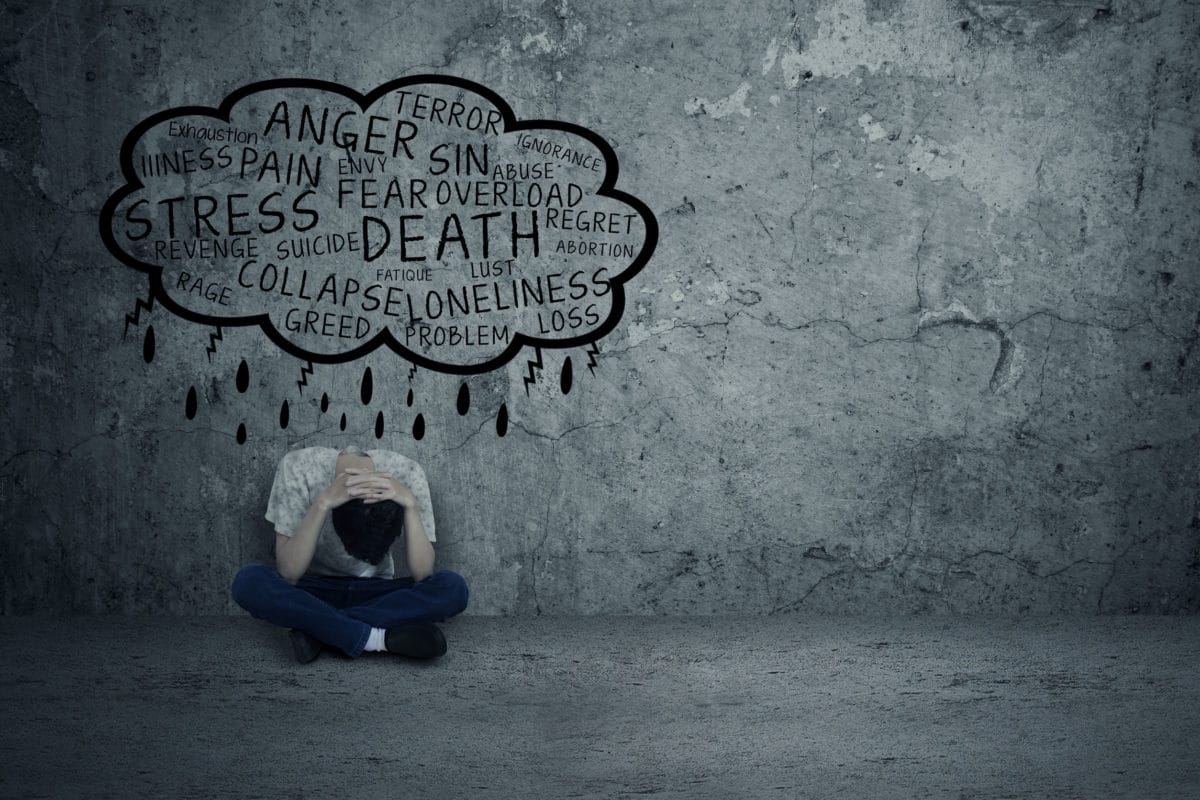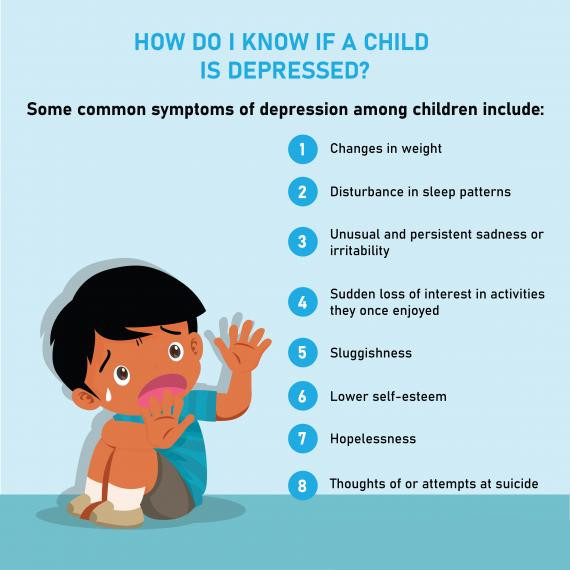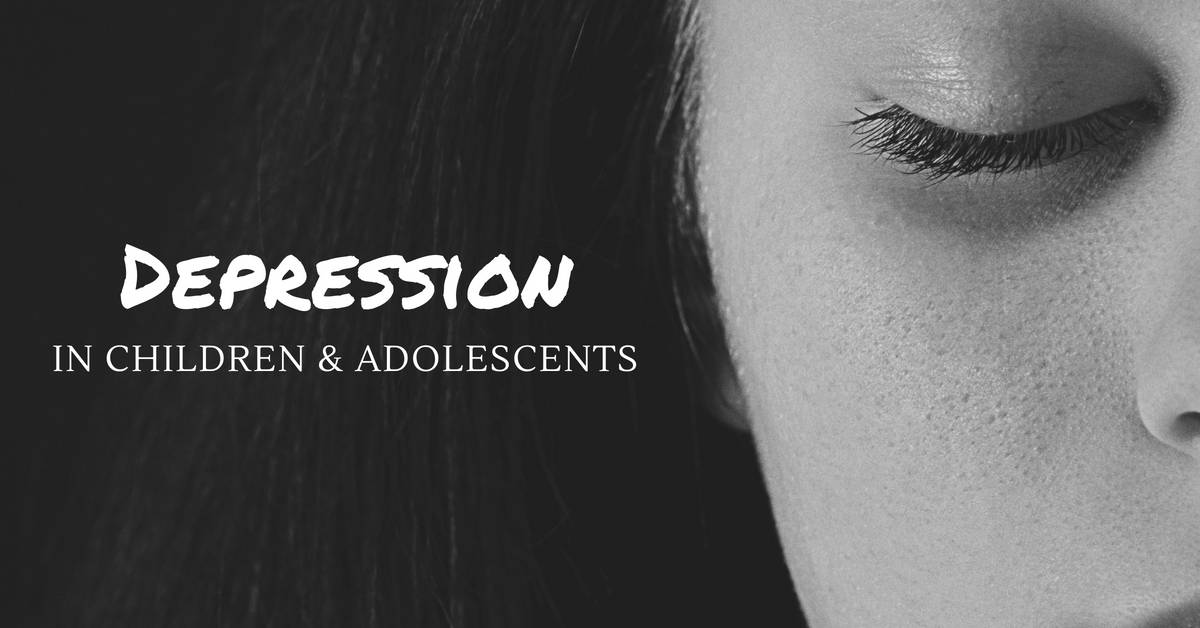Understanding Major Depression in Children
For many parents, it can be challenging to understand when their child is more than just sad. Major depression is a mood (or “affective”) disorder that goes far beyond the typical feelings of sadness that a child might experience. This complex and potentially serious condition affects a child’s thinking and behavior at home, in school, and with peers. Parents need to be aware of the signs and symptoms of major depression so they can help their children get the treatment they need.
What Are The Symptoms Of Major Depression?
Major depression manifests itself differently in each individual; however, there are some common symptoms that parents should look out for, including persistent sadness or irritability, difficulty sleeping or excessive sleepiness, changes in appetite or weight gain/loss, low energy levels or fatigue, difficulty concentrating or making decisions, feelings of guilt or worthlessness, physical aches and pains without a medical cause, and thoughts of suicide or self-harm.
It is also important to note that children with major depression often struggle to function normally in their daily lives. They may have difficulty completing tasks at home or school, have trouble forming relationships with peers due to social withdrawal or isolation, and begin using drugs or alcohol as coping mechanisms.
How Is Major Depression Diagnosed?
If your child is exhibiting any of the above symptoms for more than two weeks and you are concerned, they may struggle with major depression; it is essential to speak with your pediatrician immediately. Your doctor will evaluate your child’s mental health history and current situation by asking questions about how they have been feeling lately and a family history of mental illness. Depending on the results of this evaluation, your doctor may refer your child to a mental health specialist, such as an adolescent psychiatrist, for further evaluation. The specialist will likely use diagnostic tools such as questionnaires and interviews to come up with an accurate diagnosis.
Causes of major depression
Major depression is a complex illness that has a variety of contributing causes. Recent research has uncovered a vital genetic component, indicating one’s likelihood of developing the disorder can be inherited. However, environmental factors play an essential role as well. Studies show that children are significantly more likely to develop major depression if they have experienced trauma, significant changes or losses in life, family conflict, or abusive relationships with peers. These collective factors indicate while genetics may influence the risk of developing major depression, environmental circumstances also play a crucial role in determining its occurrence.

Signs and Symptoms of major depression
Major depression is a severe mental health disorder that adversely affects children’s development and behavior. Signs and symptoms of significant depression vary from child to child but generally involve low mood or loss of interest or pleasure in previously enjoyable activities. To be diagnosed with major depression, a child must show at least one of the two main criteria: depression or anhedonia (loss of interest or pleasure). Depression can show itself as frequently feeling sad or empty, tearfulness, and difficulty expressing positive emotions. Anhedonia may present itself as withdrawal from family members and friends, loss of enthusiasm for favorite activities previously enjoyed, worries that cannot be shaken off, and feeling apathetic towards the world around them. Suppose a child shows any combination of these symptoms for most days over two weeks. In that case, it’s time to seek professional help for your loved one, as early intervention is critical in allowing them to live their happiest life possible.
Persistent sad, anxious, or “empty” mood
Persistent sad, anxious, or “empty” moods can signify depression and should be taken seriously. Although occasional episodes of feeling down or overwhelmed are regular, paying attention to how long these episodes last is essential. If this type of mood persists for two weeks or longer, it is worth reaching out for help from a medical professional or counselor. This may result in a referral to mental health services to develop personalized strategies for managing persistent emotions and improving overall well-being. Seeking support can prevent further deterioration of mental health, so do not hesitate to take that first step.
Feelings of hopelessness, pessimism
Feelings of hopelessness and pessimism can have a significant impact on your health. These negative emotions are associated with increased stress levels and cortisol production, which can affect physical well-being. In some cases of extreme or prolonged pessimism or hopelessness, people can develop mental health issues like depression or anxiety. It is essential to recognize these feelings when they come up and take steps to address them before the situation worsens. For some people, talking to a qualified therapist is the best option for confronting these challenging emotions. Other helpful resources could include mindfulness activities, journaling/writing out your thoughts, and surrounding yourself with supportive people.
Loss of interest or pleasure in hobbies and activities
Everyone experiences a lack of motivation in their favorite activities from time to time. But when it becomes a chronic issue, it could indicate a more serious problem underlying the feeling of apathy and enthusiasm for life’s small pleasures. This can be due to mental health struggles, family issues, or environmental changes, making accessing hobbies challenging. People suffering from this loss of interest should speak to their doctor about treatment options that can help bring joy back into their lives. With the proper guidance and support, individuals can start engaging in activities they once loved.
Decreased energy, fatigue, being “slowed down.”
Feeling drained and lethargic can be frustrating and worrisome for people, as reduced energy and fatigue often indicate something more significant is wrong. Being “slowed down” mentally or physically can be concerning because it prevents us from completing our tasks efficiently. Many potential causes of decreased energy include insufficient sleep, poor diet, underlying medical issues, stress, or inadequate exercise. It is recommended that any person experiencing such symptoms visit their healthcare provider to determine the cause. Treatment varies depending on the underlying cause but usually involves lifestyle changes such as optimizing sleep patterns and regular exercise and modifying diet to increase energy levels naturally.
Difficulty concentrating, remembering, making decisions
We all rely on concentration, memory, and decision-making at least once a day. Making the right decisions in work and personal life is invaluable, significantly when those skills are compromised by difficulty concentrating, remembering, or making decisions. It can indicate an underlying health issue such as depression or lack of sleep, but it can also stem from stress or simple everyday distractions. If this difficulty persists for more than three weeks, consulting with a professional who will help uncover the root cause and suggest possible treatments is essential. With the proper support, you can strengthen those skills and return to making crucial decisions confidently.
Insomnia, early-morning awakening, or oversleeping
Experiencing sleeping difficulty is a signal from your body that something might be wrong with you. Insomnia, early-morning awakening, or oversleeping can all lead to exhaustion and fatigue; often, it’s caused by underlying medical or psychological problems such as anxiety, stress, or depression. It is essential to have your sleeping issues assessed by a healthcare professional if they are persistent. Treatment may involve lifestyle changes such as limiting caffeine intake close to bedtime and increasing exercise during the daytime. A clinical evaluation may also involve psychological therapy and behavioral treatments that can teach you different sleep strategies to help minimize insomnia symptoms. It could be further necessary to take certain medications to improve sleep quality and relieve these unpleasant symptoms.
Appetite and weight loss or overeating and weight gain
Too much food or the wrong kind of food can lead to weight gain, but just as bad as not eating enough. A poor appetite or losing one’s needs can lead to malnutrition and significant health risks. Skipping meals, binging and skipping meals again, or severely restricting calories are dire consequences if done in excess. Moderation is vital when it comes to food consumption. Eating balanced meals with adequate nutrients helps support metabolism, energy levels, muscle growth and maintenance, fat storage, and a healthy weight in the long run. Eating too little can have an equally adverse effect on a person’s physical and mental health, showing that having a good appetite can be just as beneficial as knowing portion control.
Thoughts of death or suicide; suicide attempts
Thoughts of death or suicide can be a terrifying and overwhelming experience. It is important to remember that no one has to battle these thoughts alone. Seeking help from a professional mental health counselor can provide an outlet for expressing your emotions and providing recommendations on how best to manage your thoughts. If a suicide attempt is made, it is essential to seek assistance immediately. Even if the effort was unsuccessful, medical attention should be sought to assess any potential harm that could have resulted from the action. By seeking proper care and treatment, individuals can learn how to better cope with such feelings without taking drastic measures that could potentially harm themselves or others.
Restlessness, irritability
Several different factors can cause restlessness and irritability. Stress, fatigue, and boredom are common causes of mental health research. Many people struggle with these issues without necessarily seeing them as symptoms of an underlying problem. It is essential to take the time to reflect on your lifestyle patterns and personal triggers for restlessness or irritability because it may help to uncover potential solutions. Even something as simple as adding daily exercise or mindfulness activities could make a big difference in managing those troublesome feelings. Taking proactive action can be incredibly empowering, so don’t wait until the problems become overwhelming – get curious about how you might reduce restlessness and irritability now!

Treatment for major depression
It is important to remember that treating major depression effectively requires multiple elements, including long-term management and lifestyle changes. Starting treatment as soon as possible can lead to the most favorable outcome regarding symptoms and quality of life. Early intervention can help avoid the development of more severe episodes and additional comorbidities, such as anxiety or substance abuse disorders. Treatment for major depression can include psychological counseling, medication, or a combination of both, depending on the severity of symptoms and family stability. Behavioral therapies such as Cognitive Behavioral Therapy (CBT) are active when used early. Working with medical professionals to develop an individualized plan will provide the best chances to prevent future depressive episodes effectively.
Evidence-based Individual Therapy
Cognitive-behavioral therapy (CBT): is an effective treatment for children with depressive symptoms. It can bring lasting, positive results to your child’s outlook and behavior. CBT helps challenge distorted views to gain a more realistic perspective of oneself and the world. By doing so, individuals can develop healthier beliefs and behaviors, enhancing self-confidence and resilience towards difficulty. Additionally, CBT encourages people to become more involved in activities that promote positive feelings and moods and promote better problem-solving skills. Practicing these procedures will give your child the ability to handle situations assertively instead of passively and develop coping strategies they can practice when dealing with life’s struggles. Cognitive-behavioral therapy is a great way to help your child build confidence and develop their full potential!
Interpersonal therapy: is known to help decrease depressive symptoms in children by getting them to cope with relationship stressors. This type of therapy works by helping the child acquire better communication, problem-solving, and social interaction skills. This treatment is beneficial as it focuses on how a person interacts with the people around them to improve their mental health. Additionally, this can provide the child’s family with an understanding of how relationships can help foster improved mental health. As interpersonal therapy enables a better understanding of relationships, it will help the child manage their problems and cope better with difficult situations they may encounter. All in all, Interpersonal therapy provides a safe place to practice positive behavior and can significantly reduce symptoms of depression.
Family Therapy
Family therapy is an essential tool that parents can use to help their children manage their moods and cope with life changes. During these sessions, parents and other family members work together with a therapist to discuss any potential family dynamics that could be causing stress on the individual. This helps them identify effective strategies for managing emotions. They can also explore ways to support each other as they work through issues together within and beyond the session. In doing so, they will gain tools and resources to help themselves find solutions for their families.
Outlook for major depression
Major depression can be treated effectively in children, often resulting in a complete remission of symptoms. However, even with successful treatment, some children may have recurrent episodes or experience emotions that affect their lives for a lengthy period. In these cases, it is essential to provide ongoing care and revisit treatment options when needed. Although there is no one-size-fits-all approach to treating major depression in children, understanding the available treatment options and the potential outlook can help parents and providers feel more confident in their child’s care plan.
Major depression can have a profound impact on both the mental wellbeing and general functioning of children if left untreated. Being aware of the signs and symptoms of major depression can help parents identify when their child needs additional support from qualified professionals. If your child is displaying any symptoms mentioned above for more than two weeks it is important to speak with your pediatrician right away so that he/she can receive the treatment needed for recovery. Taking action now will give your child the best chance at living a healthy life free from major depressive episodes.
Contact us today at 816.819.5166 or schedule your appointment online.






